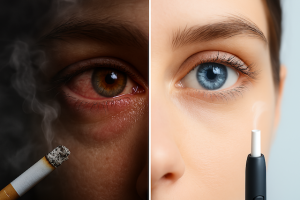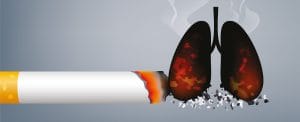Yesterday, the Italian Ministry of Health released new data on smoking prevalence: there are 800000 more smokers in the country than in 2019. Rates increased especially among women and young people. The report found that also the numbers of the users of heated tobacco products and electronic cigarettes is rising.
“An expected disaster, partly anticipated by our data published in 2020 and obtained thanks to a study conducted during the acute phase of Covid-19 pandemic. Since then, no prevention policies, no answers from the Italian health authorities. Reporting a disaster is not enough: we need to come up with alternative and effective solutions”, stated professor Riccardo Polosa, founder of the CoEHAR, who opened the first National Conference on Tobacco Harm Reduction.
The most influential experts in the field of antismoking research gathered in Catania this morning. Among them, numerous professors and experts in public health policies. Doctors, students, journalists and researchers of the University of Catania joined the conference held in the Aula Magna of the University and welcomed the beginning of the lectures coordinated by the founder of the CoEHAR.
Special guest, prof. Hiroya Kumamaru, Deputy Director of AOI International Hospital of Kawasaki, who shared with the audience the model of one of the countries with highest number of smokers in the world, Japan: “Thanks to the introduction of heated tobacco products in Japan in 2014- explained the scientist- there has been a 34% decrease in tobacco consumption in 4 years. Moreover, It has been showed that there is no tobacco initiation in young people using these products. Dual users are just the 6% of total users. These results are extraordinary and testify to the real effectiveness of risk reduction as a solution to the long-standing problem of smoking”.
For those patients who can’t quit smoking by themselves, switching to smokeless products means improving lifestyle and health, in almost every area evaluated. As explained by prof. Emmanuele Iannini, Professor of Endocrinology and Medical Sexology at Tor Vergata University of Rome and CoEHAR member: “The risk-reduction approach is one of the foundations of modern sexuality medicine, from the use of condoms to social interventions. The term ‘harm reduction’ fits perfectly every behavior that impact on sexuality: habits that people can’t or do not want to quit, as it should be done. The example of smoking is paradigmatic: people should quit smoking to preserve sexual health and, when clearly it can’t be done, it must be addressed with harm reduction policies”.
Significant improvements have been observed in physical performance and mental health condition. So reported prof. Pasquale Caponnetto, professor of Clinical Psychology at the University of Catania: “Thanks to our most recent clinical study, the first in the World to evaluate heated tobacco products compared to e-cigarettes, data showed that both products are useful tool for smoking cessation. A good level of acceptability emerged among those smokers who approach them as a product to reduce the risk and with excellent results in terms of cessation or reduction in the consumption of conventional cigarettes after few weeks”.
Current smoking prevention policies should be adapted to changing times: if not, the risk is that they become anachronistic. Tobacco harm reduction is a principle recognized by the most important international health authorities and should be integrated into care and assistance paths for those smokers who are unable to quit with traditional methods.




